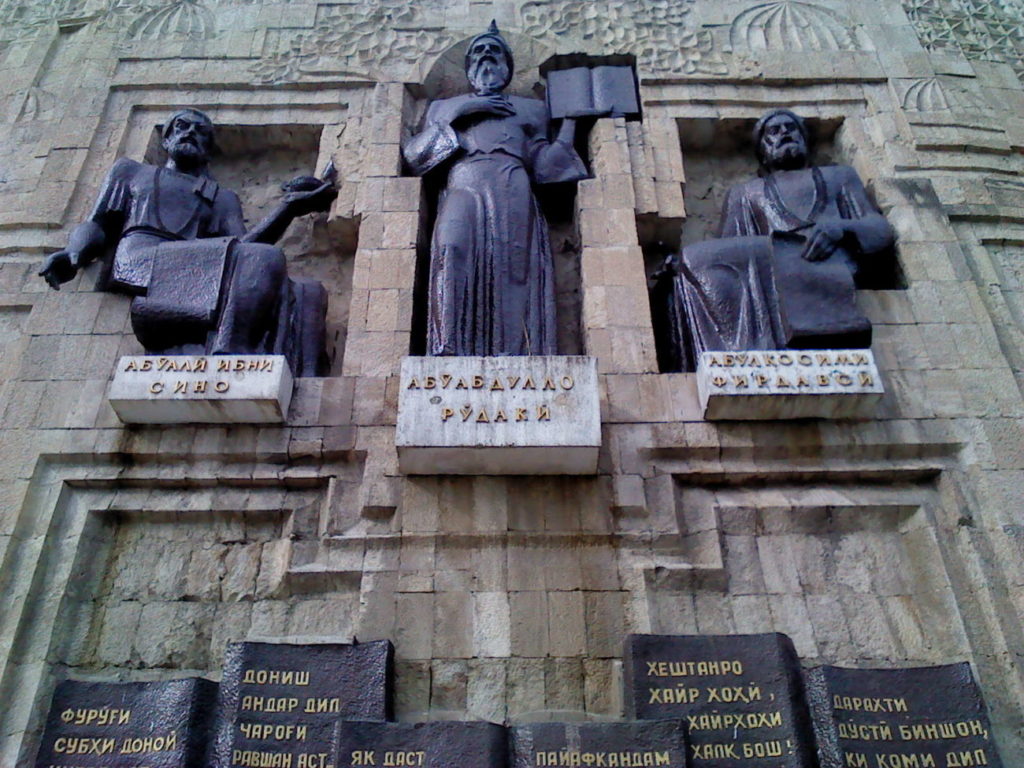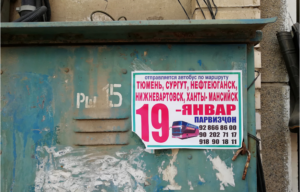In August 2022, the French historian and writer Stéphane Dudoignon published “Hymnes de sang” (or “Hymns of Blood”) – a collection of short stories by Tajik writers from the Perestroika era translated into French. He is using this opportunity to tell of a time of optimism and intellectual upheaval in Dushanbe before the civil war.This article was originally published on Novastan’s French website on 21 September 2022.
It is a collection of short stories about a Tajikistan which is no longer recognisable. “Hymnes de sang,” which appeared this summer from publisher Les Indes Savantes, contains short stories by various Tajik authors. Each of them questions the governance of the USSR in Central Asia in its own way. Through their works Janibek Akabir, Muhammad-Zaman Saleh, Bahmanyar, Qadir Rustam and Rahim Saidar ask what the future of an independent Tajikistan could look like. The eight short stories in the collection were selected and translated by Stéphane Dudoignon about 20 years ago, when he met with Tajik authors in a writers’ collective in Dushanbe. Those authors eventually became his friends. “I loved it, landing there, playing billiards, drinking vodka, and discussing literature with people who had lived there continually,” he says. Read more on Novastan: Who is Manizha, the Tajik-born singer representing Russia at the Eurovision? Dudoignon travelled regularly throughout Central Asia during the late Soviet era to further his research into reformed Islam. He also worked as a film importer for French businesses and therefore came into contact with the “creative intelligentsia,” that is, members of the intellectual circles in the USSR.
Reckoning with Dominance
The historian decided to honour his friends with the publication of these short stories, but they also possess a “thematic unity around the culture of political domination.” In lyrical, symbolic, or even grotesque registers, the writers probe their inheritance from Russian and Soviet rulers. What unites them is a certain “reckoning with these rulers, who were particularly bloody in Central Asia in the 1920s and 1930s,” as Dudoignon states. In the short story “Hymns of Blood,” which gave the collection its name, the writer Muhammad-Zaman Saleh tells of the rule and forced Arabisation of Baghdad over the remote Khorasan Province by the Abbasid Caliphate between the 8th and 9th centuries. This, according to the historian, is a clear metaphor for Moscow’s rule over Central Asian societies. On the other hand, the short story “Genghis Khan” by Qadir Rustam tells of villagers contemplating to overthrow a tyrant, denouncing the burden of Soviet “little bosses” who dominated Tajikistan in the 20th century. Such topics are approached with surprising optimism as the authors attempt to portray paths to emancipation, especially through culture. Persian-Central Asian identity, which is being resurrected by many, is seen as a tool which can help to rebuild a modern and independent Tajik nation.
A lost freedom
The time from 1987 to 1992 “was a very special time in Tajikistan, especially with literary magazines such as ‘The Way of the East’ in Dushanbe, in which writers regularly published for a large readership.” While censorship in the collapsing USSR steadily decreased, the then-numerous bookshops and kiosks in Tajikistan overflowed with new ideas and trends, and were the scene of literary experimentation. “This is difficult to imagine today in Tajikistan,” laments Stéphane Dudoignon, as the country suffers under the dictatorship of President Emomali Rahmon, who blocks any deviating artistic expression. Many of the authors featured in “Hymnes de sang” left Tajikistan or Dushanbe during the civil war. Some died in exile, such as Rahim Saidar, who passed away in Moscow. As a result of their departure, the intellectual and cultural activity in Dushanbe vanished.
Written by Emma Collet
Translated from French to German by Florian Coppenrath
Translated from German to English by Mari Paine
Edited by Maya Ivanova
For more news and analysis from Central Asia, follow us on Twitter, Facebook, Telegram, Linkedin or Instagram.
 “Hymns of Blood” – Tajik short stories from Perestroika
“Hymns of Blood” – Tajik short stories from Perestroika 



